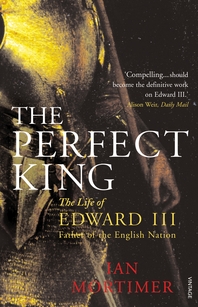

Nineteenth century historians saw in Edward the opportunity to decry a warmonger, and painted him as a self-seeking, rapacious, tax-gathering conqueror. Under him the feudal kingdom of England became a highly organised nation and experienced its longest period of domestic peace in the middle ages. In this first full study of the man’s character and life, Ian Mortimer shows how Edward personally provided the impetus for much of the drama of his fifty-year reign. Yet for centuries Edward III was celebrated as the most brilliant king England had ever had, and three hundred years after his death it was said that his kingship was perhaps the greatest that the world had ever known.

He ordered his uncle to be beheaded he usurped his father’s throne he started a war which lasted for more than a hundred years, and taxed his people more than any other previous king. So it’s worth reading around this to get other points of view. HOWEVER he writes his narrative as if this is an undisputed fact – which it isn’t – many historians disagree and the historical orthodoxy up until now has been that he DID die when he was supposed to have in 1327 in captivity. He makes a good case, using it to explain some of the things Edward did after 1330. One thing to note though is that the author asserts that Edward’s father was in fact still alive after the date he was supposedly killed by Roger Mortimer and that the young Edward III knew about it, and indeed actively searched for him once he’d rested power back from Mortimer & his own mother in 1330.

I especially enjoyed his narrative of the 1346 invasion of France leading up to that most famous of English victories at Crecy. Ian Mortimer writes in a style of that was most engaging and compelling which made this 400+ page tome on Edward III enjoyable and not intimidating at all. The Perfect King: The Life of Edward III, Father of the English Nation by Ian Mortimer Book Review : The Perfect King: The Life of Edward III, Father of the English Nation by Ian Mortimer


 0 kommentar(er)
0 kommentar(er)
